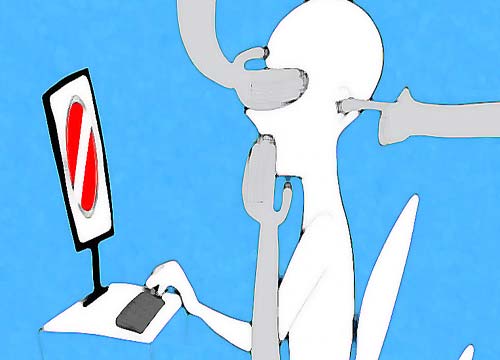A section of the specially-abled population was hugely relying on the smartphones and internet to stay in touch with their families. For the last 115 days, they are the voiceless victims of the internet ban, reports Syed Samreen

In Sopore’s Towheed Bagh, Mohammad Aslam and Amina, kept on looking at their mobile screens, waiting for a video call from their son, living outside Kashmir. They have not been able to talk to their son, since August 5, when the internet was banned in Kashmir.
The family and their son are dependent on the internet because they essentially have to communicate on a video call. Atif, their son, is differently-abled, has congenital deafness and is at a loss for words. The only way he could communicate to anyone is through a video call. Atif uses actions and expressions to gesticulate and communicate with people. The family is in deep despair and worried for Atif.
Atif, pursuing his diploma in animation from Chandigarh, worries awaiting a video call from his parents. Back home, he has his hopeless anxious mother cursing the internet shutdown, a helpless father reckoning the days for he couldn’t talk to his son and a brother, who is crippled and filled with irritable emotions.
Aamir, his brother, said the family didn’t have any contact with Atif since August 5. The whole family was living in misery as they couldn’t even convey to their son about what was happening and why exactly they were not able to make a video call. August 4 was the last day of communication as the family saw their son’s face on a video call.
“Being unknown of Atif’s condition, Papa told me that he would go and see Atif but by mere chance, the second day I was informed through landline about GATE examination forms being issued,” Aamir said. “It was very important for me to fill out the form as I am a final year engineering student and have to study further. So, I decided to go to Chandigarh to meet my brother and fill the form.”
For Aamir, the internet was as necessary for the submission of online form as for anyone else, but the kind of need Aatif had, was immense. Moreover, Aamir was waiting with bated breath to meet his brother.
“My brother was extremely happy to see me,” Aamir said. “He actually broke down the moment he saw and hugged me.”
The issues that Aatif addressed were heart-breaking. In the midst of lockdown and not being able to talk to his parents, he had run out of money. The institution fee of Rs 25,000 wasn’t paid in time by him because he was rendered moneyless, and couldn’t inform his parents about the shortage he had faced. Let alone the college fee, he didn’t even have money to pay his landlord for the room he was staying in. “We didn’t even know that our family member was facing such a grave situation,” Aamir said. “The internet ban has been very merciless to us, but I have paid all his pending fees.”
Aamir felt that he should send Aatif back home to see his parents. Just a video call could have avoided such a long travel back home at the peak of tension.
Reaching home and meeting his parents amidst the blockade and uncertainty, didn’t make him feel any better, a fortnight later after getting back to Chandigarh he again started feeling homesick.
The situation eased for the family only after the post-paid phone services were restored. Now the family communicates to their son through a friend who is outside Kashmir. Whatever needs to be conveyed is told to a friend who talks it out to Aatif through video call, making communication a cumbersome and interdependent cycle.
Aatif is not the only victim of the broadband ban. Almost every specially-abled person in a deaf and dumb category are predominately relying on the video calls to communicate with their families in signed language. For the last more than three months, these people either stay with their families or the families have gone to live with them.
(Names were changed on request)















